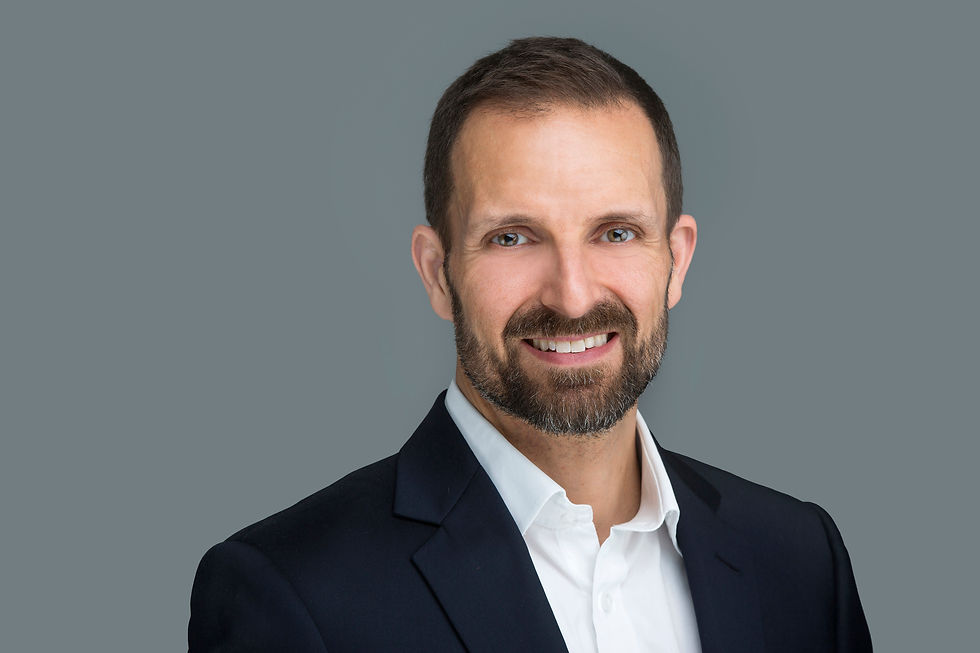ESG Investing - How Dimitri Kern, a Long Short Equity PM, embraces the change
- Saarthak Chhabra

- Jul 14, 2020
- 6 min read
Updated: Jan 27, 2021
Velox fireside chat series
The Velox Fund is a pan-European equity long short investment strategy that integrates technicals, fundamentals, sentiment and catalysts in order to source repeatable patterns of market behaviour within a controlled environment of risk disciplines. From 2018, Velox became an early adopter of ESG, integrating this ethos into the firm's mission statement and core values - and from the start of 2019, into the Velox investment strategy. We are joined by Dimitri Kern, portfolio manager of the Velox Fund. Dimitri has been a portfolio manager for over 12 years and has promised to share his views on incorporating Environment, Social and Governance criteria into his portfolio construction process.
Dimitri, thank you for having this chat with us, I’m looking forward to discussing your approach. SC: Dimitri, in a few words, what does ESG investment mean to you?
DK: First of all, Saarthak, thanks for coming on board and driving our ESG initiative. You will see a lot of your work reflected in what we do and in echoing the core values of Velox. So what does ESG investing mean to us? ESG investing means to drive change to companies thinking, impacting their long-term strategies by engaging with the corporates on issues which have sustainability at its core. An example would be looking for sectors such as Energy, where companies seek to transform themselves. RWE, a German giant, would be one of the examples where management has been proactively driving a change towards a cleaner company, and improving their corporate governance at the same time. Overall it means the opportunity to create clean return without sacrificing alpha.
SC: When and why did you start paying attention to ESG criteria within your investment companies?
DK: It has been a gradual evolution rather than seismic shift of the strategy. When I first started running a mandate in 2008, one of the senior investors advised me to pay attention to corporate governance - I have been building out that framework ever since. There’s a strong underlying belief that management teams with a focus on all stakeholders, rather than just the key shareholders, drive long term returns. Being a technology nerd, embedding the drive for change has disproportionately driven me into new disruptive technologies and areas of the market where a valuation safety net is less prevalent, and therefore more trust and due diligence has to be put into the quality and KPIs of the management team.
The last 2 or 3 years the E & S of ESG have come together. Seeing the change our generation can achieve by actively driving the discussion on environmental change and social betterment, and feeling the issue becoming a tangible theme/factor in my investment universe.
All can see what happened to Boohoo’s share price, and its customers, once the news of the Leicester supplier broke. Investors ran for the door, and customers like Next and Amazon took them off their platforms with immediate effect.
SC: Dimitri, what role do you think you and other asset managers can play to help the environment and the society?
DK: We are in the lucky position to have direct access to the top management, and can engage and transmit issues which we believe are critical for us and our investors. At the end of the day, decisions follow money, so money can be an important medium to drive change in the right areas. It might sound cynical, but with most things in life it’s all about incentives and tipping points. The current governmental, social and regulatory framework has started to facilitate this change in the slow moving financial industry. As companies compete for capital for growth, ESG has all the means to steer and penalise and supercharge growth in specific areas of the economy.
SC: What do you think is an imminent danger to the world, and what is Velox doing about that?
DK: It’s Global Warming, beyond doubt. Global Warming is a real threat. It’s something which we recognise being felt as a consequence of our advances as a society due to accelerating speed of industrialisation, population growth, bringing positive change to the quality of living but at a price. It is fairly evident that temperatures are rising every year which is damaging the balance in a fragile ecosystem.
The Velox team have focused on diverting capital and liquidity away from Coal, Nuclear and Palm Oil companies by putting them on the fund’s restricted list. Instead, we focus on investing into companies with renewable energy angles - EDP, RWE, Scatec Solar, Iberdrola, to name a few.
As a firm, we have made some changes towards reducing our carbon footprint in our operations. From early 2018 we started printing less, opting for virtual vs face-to-face meetings, and reducing attendance at conferences that required flying. We are a small organisation, but we believe that the change starts with ourselves.
SC: So we’ve heard what you are doing on the environmental side of things, but what about the S and the G? Are they important to you as well, and how?
DK: In my mind, S&G is a natural expansion of the concept of the strong management teams. By having strong frameworks and processes in place, companies can create an open minded culture which gives it an advantage vs less progressive peers. These can contribute to medium term success, allowing the companies with strong governance to attract faster capital and better talent. This in return translates into a higher valuation.
SC: Could you give an example of when you didn't invest in a company due to Social or Governance reasons?
DK: Examples would be Flutter entertainment, GVC and William Hill. Even though most companies within the Gambling sector have financially stable business models and are asset-light, with free cash flow generation and high returns on investments, the nature of their businesses is questionable and therefore continuously attracts higher scrutiny from society and regulators. A further example would be Wirecard. The company is positioned within a fast-paced growing e-payment space, but we have been prohibited from being long holders of the company based on its S and G profile, and on various occasions have been actually short sellers.
SC: How do you then decide which issues can be material to the company's performance?
DK: The Velox team have created a materiality map, which selects ESG issues that can have a material impact on a company’s performance in the short and medium-term. We have instated a process in our quarterly ESG committee meeting to review these issues and ensure they are aligned with the current risks coming from E, S and G. By observing market developments, engaging with the companies, staying on top of the regulatory framework and translating the observations into sustainable framework, we are able to stay on top of those issues affecting the specific company.
The team have also developed a proprietary tool called ViA (Velox Integration App), which scores companies on its industry material issues. We ‘red flag’ companies where more than 50% of underlying factors are at the bottom quartile of its industry peers. This tool allows us quickly and intuitively assess how company performs with our ESG lens. A company might score well on E but lag behind on S and G.
SC: We’ve spoken about risks, but what about opportunities? Is ESG investment providing you with any opportunities to make alpha?
DK: Of course, and that’s a very exciting topic. At the moment a lot of focus is on the Environmental side, with some obvious winners in the Renewables space - Orsted, Enel, EDP and Scatec Solar, to name a few of the companies which we’ve looked at or are invested in. Further down the value chain, wind turbine manufactures such as Vestas Powers or Siemens Gamesa. We believe the discussion needs to go deeper into sub parts suppliers, greener steel manufacture and so forth.
There is also a strong drive towards new technologies with NEL and Ceres Power in Hydrogen space, as an example. Further, payment providers eliminating the use of traditional cash, such as Worldline and Nexi, have seen strong momentum. We further observe strong preference investing into gaming vs. gambling. Another thing we are keeping a close eye on is sustainable infrastructure. With the EU green deal or green recovery focused fund, we are getting more and more support and clarity for companies in the value chain of sustainable infrastructure, such as green office buildings and its suppliers, which should do well.
SC: And finally, what help do you expect from governments, regulators or public bodies to help asset managers direct capital to impactful industries or towards ESG initiatives?
DK: More tax incentives to reward good behaviour and punish harmful initiatives, potentially even restrictions on the levels of non-ESG compliant stocks that can form part of indices and pension funds. Ultimately, companies need to feel a financial advantage to transforming their businesses alongside an ethical one because, although shareholders do want impact investing, their primary driver remains performance.
Also, global carbon emission trading mechanisms which will require high carbon-emitting companies to buy carbon credits to offset their emissions and reprimand their bottom lines - along the lines of what European countries have tried to establish.



Comments